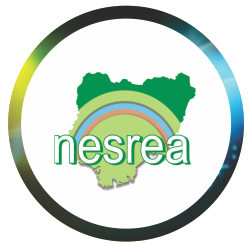Our Structure
What is Environmental Quality Control (EQC)?
All actions that help to induce efforts to ensure optimum quality of environment to meet the conservation, social, economic, health, and other requirements and goals of Nigeria.
In practical terms environmental quality control entails surveys and assessments, standard setting, monitoring for air, water and land quality, as well as biodiversity, and includes compliance monitoring of non-point sources responsible for environmental degradation.
Thrust
To ensure continuous monitoring and assessment of the environment so as to generate scientifically-based information for setting standards and their enforcement, for a cleaner and healthier environment for Nigerians.
Goals
Ensuring Ecological/Environmental Integrity through:
- appraising environmental resources and assessing ecosystem health to facilitate setting and enforcing regulatory standards and safety limits;
- monitoring ecosystem processes and trends to promptly identify adverse events and initiate/enforce mitigative measures; and
- facilitating compliance by assessing and promoting technologies and best practices for abating environmental degradation and ecosystem restoration.
Mandate Includes
- Monitor and enforce National Standards and Regulations on air and water quality;
- Collaborate with relevant local authorities and other stakeholders on compliance monitoring of air and water quality;
- Monitor and control priority pollutants with adverse effect on ecosystems integrity and human health;
- Develop environmental monitoring networks on Air Quality;
- Compile an emission database for compliance, monitoring and enforcement;
- Identify and promote appropriate technology alternatives including sound practices to ensure environmental compliance;
- Collaborate with relevant stakeholders to develop new Technologies and Innovations for environmental compliances;
- Undertake, coordinate, utilize and promote the expansion of research, experiments, surveys and studies by public or private agencies, institutions and organizations, concerning causes, effects, extent, prevention, reduction and elimination of pollution that would promote compliance with environmental standards and regulations;
- Enforce the provision of international environmental agreements in the green environment, to which Nigeria is signatory, such as CITES, RAMSAR, Convention on Biodiversity and access and benefit sharing and such other Agreements that may from time to time come into force;
- Enforce in collaboration with relevant authorities, the National Guidelines on logging and harvesting of timber products and the set standards for the export of forest products and the import of forest industry equipment;
- Enforce control measures on the protection of vegetation against wild and incidental forest fires and bush burning;
- Enforce in collaboration with relevant authorities, the National Bio-safety Policy and Guidelines to ensure that Genetically Modified Organisms (GMOs) are not harmful to the environment and people;
- Ensure that relevant permits are obtained before GMO products are imported, marketed or patented;
- Enforce the Regulations against the disposal of solid wastes in drainage channels;
- Enforce watershed management guidelines to protect water sources from flood, to prevent erosion, deforestation, degradation and contamination of spring sources;
- Enforce dam regulatory Guidelines for Dam break, sediment load and Dam water releases to prevent downstream flood;
- Enforce the incorporation of Erosion and flood control measures at the designed stage of major infrastructural / physical developments;
- Enforce the restriction of Sand dredging for beach nourishment from fragile shore areas and within areas of long shore transport; and
- In collaboration with relevant agencies, enforce urban zoning regulations including standardization of drainage infrastructure in ecological zones and protection of marginal Lands.
Functional Strategies Include:
- Developing and maintaining strategic sectoral alliances;
- Collaborative approaches with state and local governments as well as traditional institutions;
- Forging partnerships with civil society, bilateral and intergovernmental organisations;
- Emphasising science-based information and public awareness; and
- Continuous building of capacity.
